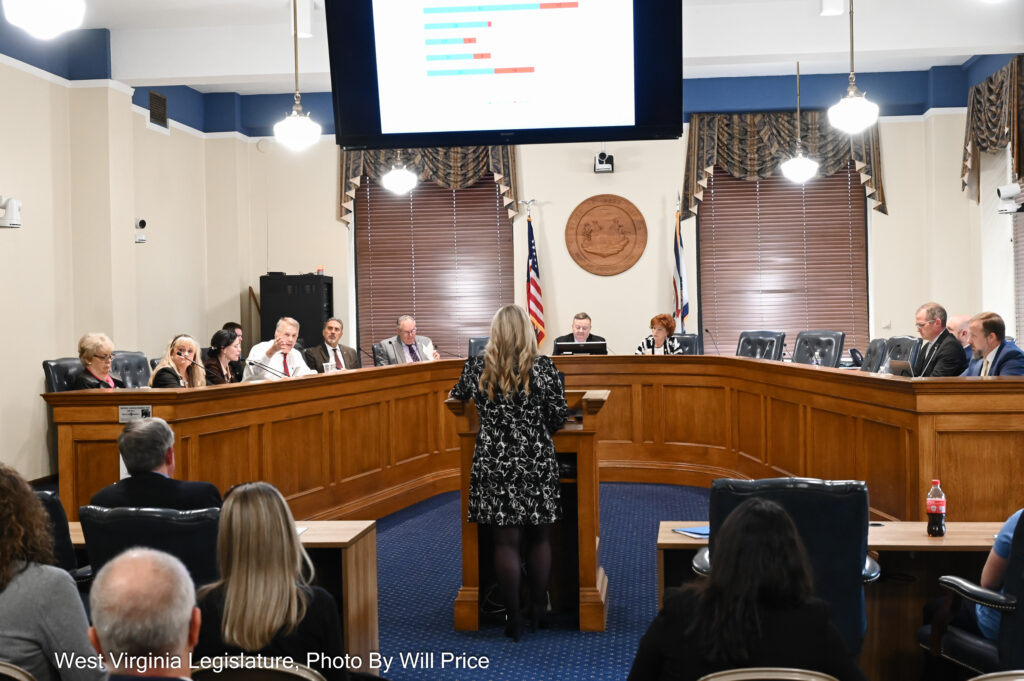West Virginia lawmakers discussed medical exemptions with vaccine experts during a meeting of the West Virginia Legislature’s Joint Committee on Children and Families.
West Virginia allows for medical exemptions to vaccines but does not allow for exemptions based on religious or philosophical beliefs.
According to Shannon Kolman, senior policy specialist in the National Conference of State Legislatures’ Health Program, vaccinations are required when a child is enrolled in a public school.
“Some states specifically spell out which vaccines are required in statutes, and other states refer to an administrative body such as the Department of Health or the Department of Education to adopt rules regarding which vaccines will be required,” Kolman said. “Some examples are states like West Virginia, also including Kentucky, New York, Ohio and Pennsylvania, expressively list the vaccines that are required for school in statute.”
However, a parent or guardian is able to apply for a medical exemption to vaccination through a physician.
“All states have immunization laws for school entry that grant exemptions to children for medical reasons,” Kolman said. “So if the vaccine is medically contraindicated, every state allows a child to have an exemption for medical reasons.”
Some lawmakers would like to see vaccination laws changed in the state. Sen. Michael Azinger, R-Wood, spoke against vaccine laws during the meeting.
“We live in America, and if a parent says they don’t want their kid to have a vaccine, they have a constitutional right to do that,” Azinger said. “And here we sit one of these little clumps of states that say that you can’t have a religious exemption. Lord have mercy. Our country was founded on religion, right? The First Amendment, and here we have this, this doctor who’s a very intelligent guy, and I appreciate him coming. But how in God’s name, do you think ‘Doc’ and these folks that DHHR, have the right to tell the parents that they have to vaccinate their children?”
Dr. Joseph Evans, former chief medical officer of Marshall Health and former chair of the Department of Pediatrics at Marshall University, said the World Health Organization has identified vaccine hesitancy as one of the top 10 threats to global health.
“Thanks to our vaccine laws, our state is among the best and safest from vaccine-preventable illness,” Evans said. “We are a model for other states trying to decrease vaccine-preventable diseases. And therefore I think we need to keep our vaccine laws. If it’s not broke, don’t fix it.”
Sen. Patricia Rucker, R-Jefferson, questioned Evans on the efficacy of vaccines.
“So you do make it sound that having this vaccination just provides a protection,” Rucker said. “Have you not ever heard of people getting an illness even though they were vaccinated against it and actually some getting the illness from the vaccine?”
Evans responded, “Well, you don’t get the illness from the vaccine.”
Rucker replied: “That has happened. That has been documented that some folks can trace back their illness to the vaccine.”
Rucker did not cite her source, but the Centers For Disease Control (CDC) studies the adverse effects of vaccines.
Shannon McBee, state epidemiologist, explained the process of compulsory school immunization law exemption to members of the committee.
“West Virginia is considered to have an exemplary immunization model with no recorded outbreaks of measles,” McBee said. “The most common requests that are approved by the Bureau for Public Health are for children who have immunosuppressive medications or have a documented severe reaction to a vaccine or a recipient of an organ transplant.”
Appalachia Health News is a project of West Virginia Public Broadcasting with support from Charleston Area Medical Center and Marshall Health.




















